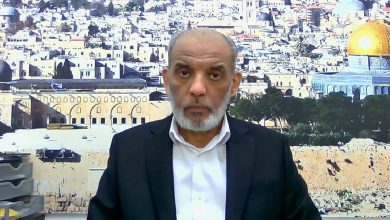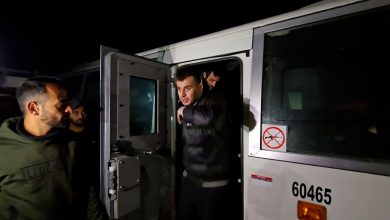The United Nations has declared its inability to access civilians trapped in El Fasher, a major city in the Darfur region of western Sudan, as fighting between the Sudanese Armed Forces (SAF) and the paramilitary Rapid Support Forces (RSF) intensifies. Jacqueline Wilma Barlevliet, head of the UNHCR office in Sudan, stated that a significant number of civilians are stranded in the city with dwindling options, highlighting a rapidly deteriorating humanitarian crisis.
Reports indicate that the RSF has entered El Fasher, sparking widespread fear among families who have already endured over 500 days of siege and relentless bombardment. According to Barlevliet, approximately 26,000 people have fled the city in recent days, seeking refuge from the escalating conflict. The situation is further complicated by the presence of armed checkpoints where civilians are vulnerable to extortion, arbitrary arrests, detention, looting, harassment, and severe human rights violations as they attempt to escape to safety.
Testimonies from those who have reached Tawila, a town located about 50 kilometers from El Fasher, paint a grim picture of a humanitarian and protection crisis spiraling out of control. The UN official emphasized the urgent need for a cessation of hostilities to allow for the safe passage of humanitarian aid to civilians in need.
When questioned about the UN’s ability to deliver aid to El Fasher, Barlevliet reiterated that the organization has repeatedly called for a truce and the establishment of safe corridors to facilitate the delivery of humanitarian assistance to civilians. However, she confirmed that the UN currently lacks a secure route to reach the civilians in El Fasher and is unable to operate effectively within the city due to the ongoing violence and security risks. Estimates suggest that approximately 260,000 civilians remain inside El Fasher, although the precise number is difficult to ascertain given the current volatile circumstances.
The Sudanese authorities, along with international and UN organizations, have accused the RSF of committing massacres and human rights violations against civilians in El Fasher, including summary executions, arrests, and forced displacement. These accusations stem from the RSF’s recent incursion into the city, which had been under siege for over a year. The RSF, however, denies these allegations, claiming that it is “clearing El Fasher and eliminating the last pockets of enemy resistance (the army and its supporting forces) as they attempt to flee the city.”
Earlier this week, the United Nations called on the RSF to allow for a “safe passage” to enable civilians to leave El Fasher. Simultaneously, the Joint Force of Armed Movements, which supports the Sudanese army in Darfur, accused the RSF of killing 2,000 civilians in El Fasher between October 26th and 27th. These accusations further exacerbate the already tense situation and highlight the urgent need for an independent investigation into the alleged atrocities.
The conflict in Sudan, which erupted in April 2023, has had a devastating impact on the country’s civilian population. Millions have been displaced, and the humanitarian situation continues to deteriorate. The fighting has disrupted essential services, including healthcare, education, and access to food and water. The situation in El Fasher is particularly dire, as the city is a critical hub for humanitarian operations in the Darfur region. Its instability threatens to further destabilize the entire region and impede the delivery of aid to those in need.
The international community has repeatedly called for a ceasefire and a peaceful resolution to the conflict. However, these calls have largely gone unheeded, and the fighting continues unabated. The UN has warned that Sudan is on the brink of a full-blown humanitarian catastrophe and has urged all parties to the conflict to prioritize the protection of civilians and allow for the unimpeded delivery of humanitarian aid.
For more information about Palestine, check our dedicated section.
The situation in El Fasher underscores the urgent need for a renewed diplomatic effort to end the conflict in Sudan. The international community must exert pressure on all parties to the conflict to cease hostilities and engage in meaningful negotiations. Failure to do so will have catastrophic consequences for the Sudanese people and the wider region.
DZWatch will continue to monitor the situation in El Fasher and provide updates as they become available. We urge our readers to support humanitarian organizations working on the ground to provide assistance to those affected by the conflict. The people of Sudan are in desperate need of our help, and we must do everything we can to alleviate their suffering.
Adding to the complexity, El Fasher’s strategic importance as a regional hub and its diverse population, including internally displaced persons (IDPs) from previous conflicts, make it a flashpoint for further escalation. The potential for ethnic tensions to be inflamed in the context of the ongoing power struggle between the SAF and RSF is a significant concern. Any large-scale violence in El Fasher could trigger a wider conflict in Darfur, reversing years of fragile peacebuilding efforts.
The lack of access for humanitarian organizations is not only preventing the delivery of life-saving aid but also hindering efforts to assess the full extent of the humanitarian needs. Without accurate information, it is difficult to effectively target assistance and ensure that resources are reaching those who need them most. The UN and other aid agencies are calling for immediate and unconditional access to El Fasher to conduct needs assessments and deliver humanitarian assistance.
The international community faces a moral imperative to protect civilians in El Fasher and across Sudan. This requires a multi-faceted approach that includes diplomatic pressure, humanitarian assistance, and accountability for those responsible for human rights violations. The African Union, the United Nations, and other regional and international actors must work together to find a lasting solution to the conflict and prevent further bloodshed.
The crisis in El Fasher serves as a stark reminder of the devastating consequences of conflict and the urgent need for peace. The international community must not turn a blind eye to the suffering of the Sudanese people. We must act now to prevent a humanitarian catastrophe and ensure that the people of Sudan can live in peace and dignity.



